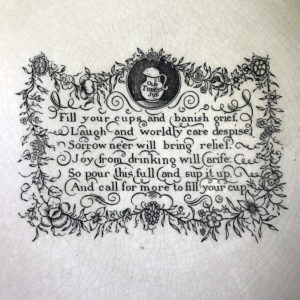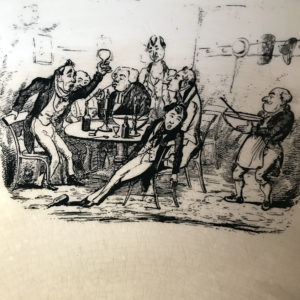I hope you had a wonderful Christmas Eve and Christmas Day. A strange Christmas, to be certain. If there has ever been a need for a Slow Christmas, it is now, this year, when we are feeling so bewildered and so disconnected from each other and from the traditional round of the year.
Here is what’s happening in corporate-driven culture this 26th of December, which has its way of trickling down to the culture of home: the stations on satellite radio that began playing Christmas music way back in October have abruptly stopped. Why they begin playing this stuff in October is anyone’s guess, and why they unplug it just as Christmas has begun has always felt bizarre to me, but Sirius XM has yet to consult with me on these matters. (Perhaps next year.) In stores, it is traditionally a day to pick up some bargains on holiday merchandise, though this year I think you’d be lucky to find anything left since Christmas, apparently, was just what we needed in this pandemic time. And you may begin to see unwanted Christmas trees tossed out on the curb as early as today, and certainly more and more as these next few days progress (especially after New Year’s Day).
My job as a Yuletide Traditionalist is to encourage you to slow down a bit. To that end, I’m going to encourage you to celebrate the next twelve days with me as the Twelve Days of Christmas, and to celebrate a proper close to the season come Twelfth Night and Epiphany, and to consider the spirit of Yuletide even in the days beyond on the road to Candlemas (a little known Christian holiday, at least here in the States) and Imbolc (another little known holiday, being its older Pagan counterpart) at the start of February.
But I’m getting ahead of myself. Let’s begin by backing up a day or two, and in case you missed it, here is a link to my Convivio Dispatch from Lake Worth, written in the dark night hours of Christmas Eve. Let’s use that to set the stage for the next twelve days, for here begins a period of time traditionally considered outside ordinary time: We enter the Twelve Days of Christmas. And this seems, of course, a good time to tackle the first controversy, and so here it is: There are two schools of thought on how to calculate the Twelve Days of Christmas. Is Christmas Day the First Day of Christmas? Some say yes, but we in this house subscribe to the venerable school of thought that places the first six days of Christmas in the old year and the next six days of Christmas in the new. Our ancestors loved the kind of magic that comes with numerical balance. It seems highly irregular to me that they would have felt right about a 12-day celebration, straddling two distinct years, that had seven days in one year and five in the next. But a balanced bridge that leads us out of one year and into a new one? Placing six days in the old year, six days in the new makes for an exquisite, beautiful balance. This is the sort of symbolism for which our ancestors strove… especially for an extraordinary time traditionally seen as outside the everyday. So when we talk about the Twelve Days of Christmas here, it is always inside this framework of balance. And so we come today to the First Day of Christmas.
FIRST DAY of CHRISTMAS
St. Stephen’s Day, Boxing Day, Day of the Wren
On this First Day of Christmas, Father Christmas brings Boxing Day, celebrated in England and the Commonwealth countries. Servants typically had to work on Christmas Day, but the First Day of Christmas was their day to spend with their families. Their employers would send them home with boxes of gifts for themselves and for the families they were heading home to. Perhaps more important, though, it is St. Stephen’s Day. Stephen was the first Christian martyr, and so the Church assigned this first day of Christmas to him. In Italy, Santo Stefano’s Day is a big deal. Christmas Day is for family, but Santo Stefano’s Day traditionally is a day to bundle up and go out to visit friends and to visit nativity scenes. It is a day for roasted chestnuts and mulled wine (as is tomorrow, St. John’s Day: the Second Day of Christmas). My Aunt Anne and my mom say that my grandmother, Assunta, typically made soup for supper on this First Day of Christmas, when we remember Santo Stefano. The soup was a nice break from the rich fare of Christmas Eve and Christmas Day. Over in Ireland, it is the Day of the Wren. It is the wren that is traditionally thought to have brought bad luck upon the imprisoned Stephen, who was making his escape when a wren alerted the sleeping guards to the situation. His capture lead to his execution and martyrdom. Wrens were traditionally hunted on this First Day of Christmas, then paraded around town––we don’t subscribe to this sort of thing and I think it’s rare to find anyone doing it nowadays… but it’s good you know the history, no?
PREPARING for these TWELVE DAYS
There are common themes that run throughout Yuletide now that it is here, the heart of which is conviviality, the source of our Convivio Bookworks name. Being a pandemic time, it’s not the ideal time for such a thing, but certainly there can be conviviality within your home, and I don’t see why these Twelve Days couldn’t be celebrated with friends and family across newer channels, like Zoom or Skype. So don’t lose sight of the convivial aspect of the season.
There are certain pantry items that are good to have on hand this Christmastime. First: chestnuts for roasting. Just like ice cream is part of summer, roasted chestnuts, for us, anyway, are part of Christmas. Spirits, in the form of red wine and cider and Christmas ale (if you drink these things) are second, for many of the Twelve Days of Christmas customs call for these things. (Don’t get carried away, now: the Puritans banned Christmas because it was, in their day, a time of drunken revelry. If there’s anything we despise, it is extremism in either direction. We don’t advocate drunken revelry, but we do advocate moderation and enjoyment.) Third: stock up on unusual ingredients that you may not necessarily have (and if you do, it may be time to replace them). Things like mulling spices, honey, and rose water will come in handy as the celebrations of the Twelve Days of Christmas progress. You’ll find excellent quality mulling spices and rose water at our catalog, made by the Sabbathday Lake Shaker Community. (Locals, use discount code PICKUP at checkout and the $8.50 shipping charge will be deducted from your order. We’ll arrange a time for you to come by our front porch for pick up, or, if you live in the 33460 zip code, I’ll be happy to make a delivery to your house by bicycle. Everyone else: we ship via USPS Priority Mail, which is two days to most destinations in the country.)
It is my sincere wish that you will join us in celebrating Christmas through all these days, to the season’s close on Epiphany, the 6th day of January. If your heart truly loves Christmas, do things in your own time, and know that in many traditions, Christmas is a season that carries on all the way to Candlemas, on the 2nd of February, and that is typically how we go about the season here. But we are a couple of old softies who love Christmas dearly. Do what feels right to you, that’s my recommendation. Even if it seems out of step with everyone else around you (because it can feel that way––but hopefully you are all wise enough to not care about things like that). Celebrate this way, and know that at the very least you have two odd fellows in Lake Worth joining you in spirit and raising their glasses with you throughout the season. And that’s not so bad.
KWANZAA
December 26 also begins the first of seven nights of Kwanzaa, the celebration of African American culture that, like Advent and Chanukah, involves an ever increasing source of candlelight during the dark nights of the Midwinter solstice. It is a relatively new celebration, as holidays go, introduced in 1966 by Dr. Maulana Kurenga, who placed the celebration at Midwinter in direct response to the commercialism he saw in Christmas. Kwanzaa begins December 26 and runs through the First of January, with each day focusing on one of seven principles: first, umoja (unity); then kujichagulia (self-determination); next, ujima (collective work and responsibility); followed by ujamaa (cooperative economics); and then nia (purpose); kuumba (creativity); and finally imani (faith). Dr. Kurenga’s wish was for African Americans to be proud of their heritage and culture. That is a noble thing indeed.
Images: Our punchbowl gets a lot of use this time of year. It’s a lovely old ceramic punchbowl, made in England, probably close to a hundred years old. The verse in the first photograph is at the bottom of the bowl, visible once the punch has been drunk, and the scene in the second photograph is one of three that illustrate the verse, both in the bowl and on the cups. The verse reads:
Fill your cups and banish grief,
Laugh and worldly care despise;
Sorrow ne’er will bring relief.
Joy from drinking will arise:
So pour this full and sup it up,
And call for more to fill your cup.


A very happy Christmas to you and your family from Stamford, Lincolnshire, England. We read your dispatches with great interest and can feel your love entwined with each message.
Thanks and love, Alan and Marsha
Thank you, Alan and Marsha, and thanks for writing. Our best to you this Christmas, too! J+S
There is another way to determine the first day of Christmas. Start at the other end with Epiphany which is on January 6th, the twelfth day. Count backwards from twelve to one and find yourself on December 26th which must then be the first day.
That works, too, James! Merry Christmas!